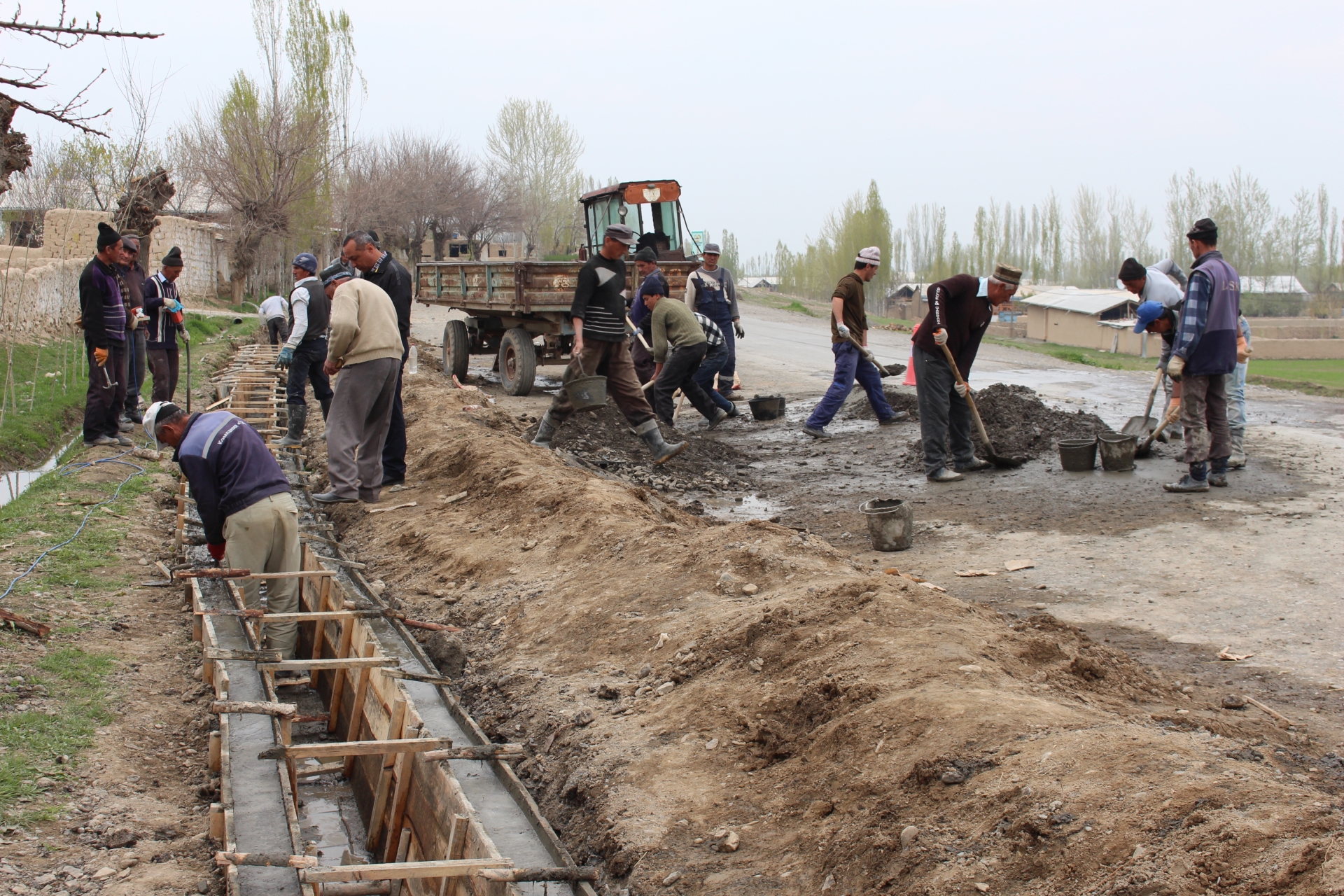

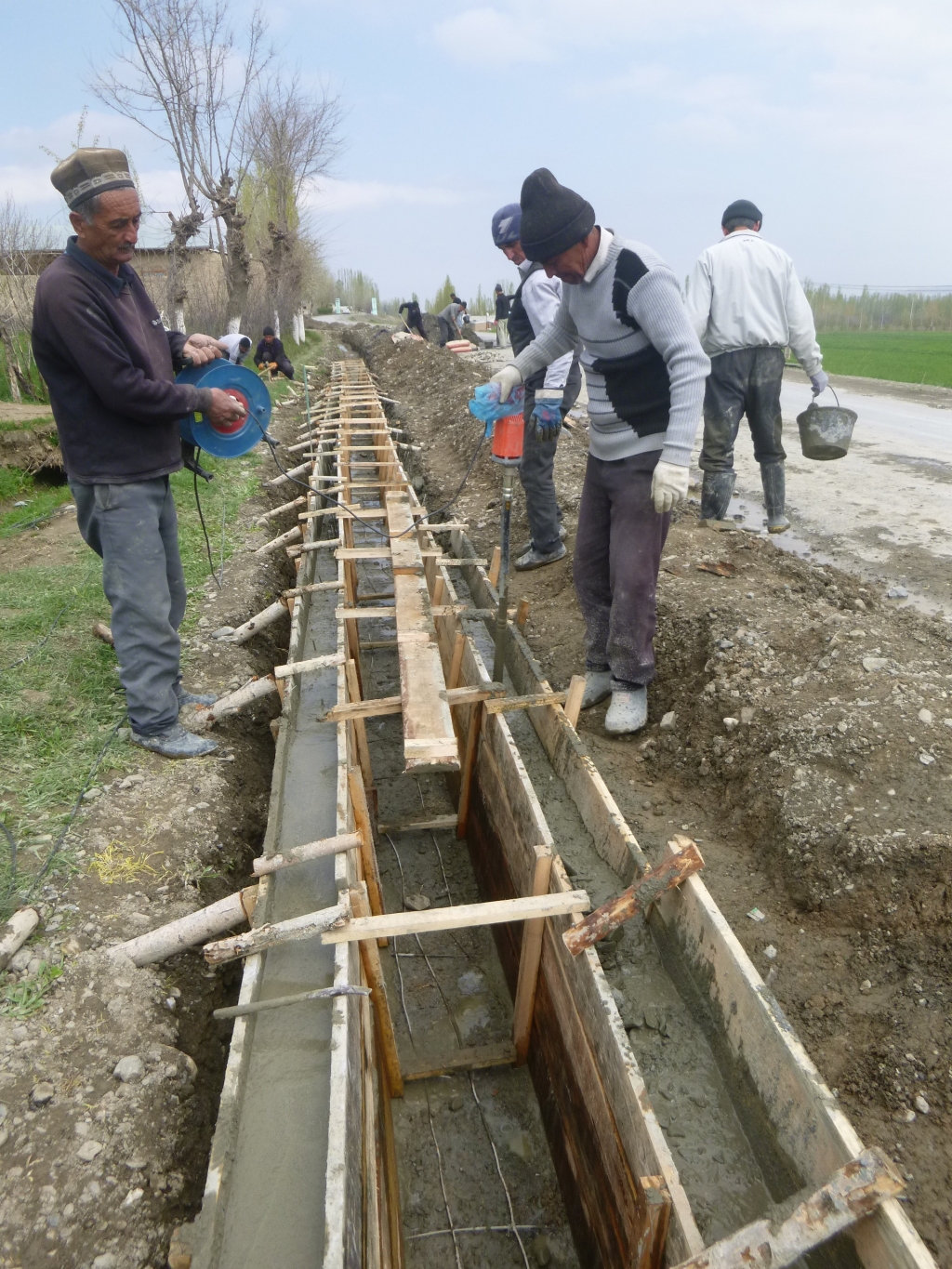
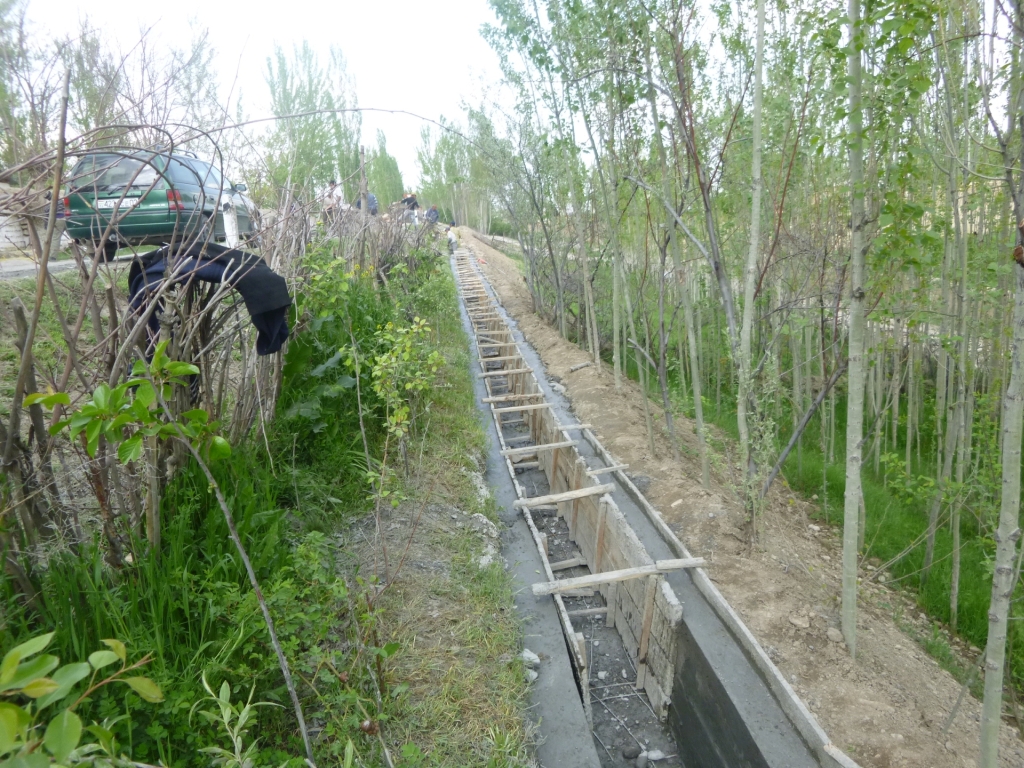
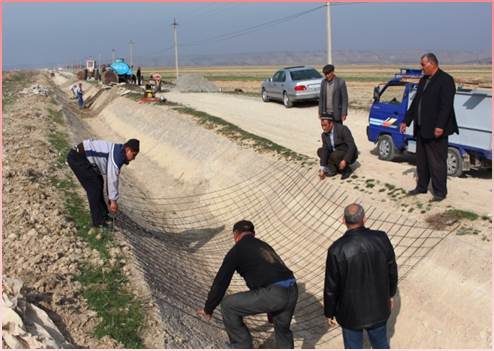
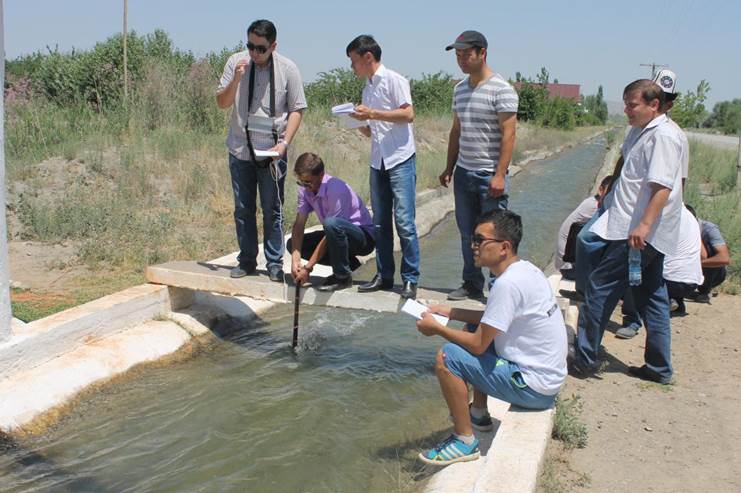
Many irrigation canals are either made as earth canals only or the concrete lining is broken. Leaking canals lose substantial amounts of water, which is consequently not available for irrigation. Furthermore, if affected by flood and debris flows, such canals can easily break and cause substantial damage.
The communities and land users together with the district water management authorities chose the sections requiring reinforcement and lining. Works were implemented with technical and financial support by GIZ, which provided the engineers guiding the rehabilitation measures and financed the purchase and transportation of materials. Communities and land users carried out the works through "hashar", the joint communal voluntary work.
The rehabilitated irrigation canals provide safe and stable irrigation water supply, waterlogging and flooding of lands alongside the canals is prevented. The further maintenance is carried by the local communities through their mahalla (village commitees) and jamoats (communal self-governance structure at sub-district level).
The combination of sound engineering knowledge and suitable materials - financed by the donor - with the willingness of the community members and land-users to contribute their time in form of voluntary work made the solution possible.
The key for success is in the combination of good engineering skills and adequate materials with the work contribution of the local people. A fully externally funded and implemented rehabilitation would not have achieved the ownership and future maintenance. Thus it would likely have been less sustainable. On the other hand, without external engineering skills and provision of suitable materials the communities and land users would not have been able to implement the works in good quality.